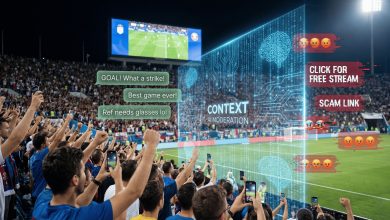Artificial Intelligence already influences many parts of sports betting. Data analytics, live odds, pattern detection, and fraud prevention all use AI in ways few bettors fully realize. Expert platforms like www.illinoisbettinghub.com have analyzed how these developments shift value, risk, and present opportunities for every bettor.
This isn’t hypothetical. Operators and tech companies now deploy machine learning, Bayesian models, computer vision, and predictive tools that adapt in real-time, learning from every play, every injury update, every shift in momentum during a live match. In this article, I will walk you through the ways in which artificial intelligence is transforming the future of sports betting.
Smarter Odds and More Dynamic Markets
Before now, traditional bookmakers used to rely heavily on historical data and fixed models. Today, AI systems ingest vast amounts of data, such as team stats, weather, player injuries, and update odds constantly. That means lines shift more quickly, even before most people notice. Bettors who pay close attention to betting markets can benefit from these dynamics.
Recent research shows that calibrated models (ones where predicted probabilities match real outcomes) outperform just “accurate” models when it comes to profitability. A study using NBA data found models selected on calibration returned over 30% profit in betting simulations. This shows that using accuracy alone often leads to losses.
Use Cases: What AI Does in Betting Now
To understand the impact of Artificial Intelligence in sports betting, let’s look at several ways AI is powering betting platforms:
Real-Time Prediction Adjustments
Models are used by sportsbooks to change projected outcomes mid-match as new data arrives. For instance, if a key player is subbed off, or weather turns bad, probabilities update immediately. Bettors will see changing lines for over/under, spreads, and props.
Fraud Detection & Responsible Betting
To control fraudulent activities, AI systems detect unusual betting patterns, flag possible abuse, and large deviations from user history. While AI is getting heavily involved in sports betting, Illinois legislators have been considering bills (SB 2398 and SB 2399) aiming to limit AI-generated personalized offers and tracking for bets.
User Behavior Insights & Personalized Interfaces
Betting platforms segment bettors by style, history, and risk appetite. AI recommends markets, alerts bettors to value or warns against risk. User Interfaces of sports betting sites become smarter, and more tailored.
Computer Vision and Spatial Analytics
Using live video feeds, AI now tracks player movement, detects fatigue, and measures game tempo in real time. This technology makes bets tied to first scorers, assists, distance covered, or player heat maps far more accurate.
It’s especially powerful in sports like football, soccer, and basketball, where lots of video footage gives AI plenty of data to analyze, which brings about sharper predictions and more precise in-game wagers.
Accuracy, Risk, and the Human Element
AI tools are powerful and have been evolving over the years, but they have limits. Understanding risk is as important as celebrating winning.
Unpredictability of Sports
While AI can do many things in sports activities, Injuries, red cards, emotional shifts, and referee decisions still escape many AI models. This means real-world randomness matters, and AI is not there yet.
Quality of Data
Garbage in, garbage out. AI works with data provided from time to time, therefore, if the input data is outdated, biased, or incomplete, predictions will lose value.
Overconfidence
Some bettors rely too much on automated signals. When outcomes diverge, losses can be overwhelming.
Ethical & Regulatory Challenges
In Illinois and other states, bills are proposed to limit AI use in promotions, tracking, and personalized offers to protect bettors against gambling harms.
What Bettors Should Look For in an AI-Powered Betting Site
When using sites that offer AI-assisted tools, bettors should ask for:
- Transparency: about how predictions are made and how confidence levels are communicated.
- Regulatory compliance: especially with respect to laws restricting AI in offers or tracking in your state.
- Real-time updates: both in odds and in data sources (injuries, lineups, weather etc.).
- User control: so you can choose which alerts or aids to use, not be blindly guided.
- Reputation & performance history: check independent reviews, historical ROI (if available), and whether predictions tend to align with outcomes over time.
Innovation Trends to Watch
- AI Agents and Bet Aggregators track odds in all sportsbooks and suggest the best lines.
- Bayesian inference or probabilistic predictive models that modify odds based on events in a live game.
- Computer vision integration: Sports that require extensive video coverage can have computer vision built into their system to provide more insight than box scores.
Conclusion: The New Era of Betting
We stand at a turning point. AI does more than speed computations, it reshapes how value is found, how risk is perceived, and how betting markets evolve. For bettors, success will increasingly depend on combining human judgment with AI tools.
Betting sites that balance transparency, regulations, and smart AI integration will lead this transformation and provide a more improved betting experience to sports bettors.




